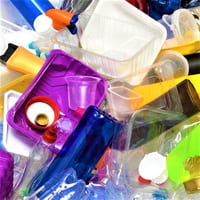
 Photos of plastic packaging and product made of plastic
Photos of plastic packaging and product made of plastic
Hello, welcome again everyone! This is our last week of school and last week of blogging as well 🙁
Time really flies. But before we end, I have 2 more posts to share with you guys, so here we go!
From my title, you surely can guess what I will be talking about today. Yes, I will be talking about how air pollution is interconnected to plastic waste – how increased air pollution will increase plastic waste and vice versa.
A study has shown that increased use of plastic is linked to poor air quality. It is documented that people tend to order delivery when their air quality outside is bad. This is evident when Chu, Liu & Salvo (2020) pointed that “an increase of 100 μg m–3 in particulate matter pollution (PM2.5) raised the propensity to order food delivery by two-fifths of the sample mean”. This thus supports that as the air quality worsens, food delivery increases which in turn increases the use of plastic packaging and utensils as well.
As the air quality gets bad, people will stay indoors and order delivery for food. Food deliveries usually use plastic containers for packing the food, plastic utensils to consume the food, and finally plastic bags to carry the food and the utensils to be delivered. That is triple the amount of plastic use for a single delivery! We are just going to continue in this endless cycle of bad air quality → staying indoor → increased food delivery → increase use of plastic → burning of plastic → increases harmful toxin which leads to bad air quality. So let me explain what is so bad about this.
Plastic is something that is closely related to our life. We use it for various reasons: carrying our groceries, as disposable forks and spoons, as containers for packing our food etc. It has become essential in the making of other products (Rudolph et al., 2017). Despite plastic being highly versatile, it is also a threat to us and the environment.
Plastic is usually synthetic and is made of many chemicals that are not easily degradable. Plastic after use is either burnt or buried in landfills. When burnt, it released toxic gases which are both a risk to human health and the environment. Furthermore, it contributes to climate change and air pollution. When buried in a landfill it might get washed off and float on/sink to the ocean. Animals might mistake these plastics and ingest them, resulting in either death of the animals or cause injuries to the animals. Besides this, when plastic is further decomposed to its smallest form – microplastic, it can get ingested into marine animals which then gets into our food chain. So essentially we are actually consuming plastic when we eat seafood. Isn’t it scary? Not only does it harm the animals and the environment, we are unknowingly consuming plastic as well!
We need to break this cycle! So here are some ways I suggest we can embark on to help reduce plastic waste, improve air quality, save the animals and most importantly save ourselves.
Firstly, try to avoid using plastic utensils. If you are ordering delivery at home, opt for the “no utensils” option. Since you are at home, you can always use the utensils you have at home, plus it’s cleaner, isn’t it?
Secondly, try to dine outside and not opt for takeaway. If you have to, bring your own container. You can just wash and reuse it.
Thirdly, bring your own bag. I’m sure this is not something new. In Singapore and some other countries, we are highly encouraged to bring our own bags for grocery shopping. On certain days, supermarkets like NTUC Fairprice will enforce this rule and charge us for the use of plastic if we didn’t bring our own.
These are some simple tips we can do to protect our health and our environment. These small little steps do help and it goes a long way. Don’t think that your effort is being wasted. Come, join me to reduce plastic waste and improve our air quality. Isn’t it nice to be able to wake up to nice fresh air? Do share with me your thoughts and your progress (if you are going to reduce your plastic consumption).
That’s all I have for now ya. See you soon!
Your environmental buddy,
Jeanice
References:
Chu, Junhong, Liu, Haoming & Salvo Alberto. (2020) Air pollution as a determinant of food delivery and related plastic waste. Nature Human Behaviour, doi:10.1038/s41562-020-00961-1
Ferrer Benjamin. (2019). Plastic packaging [Online image]. Retrieved from: https://www.packaginginsights.com/news/switching-out-plastic-most-europeans-willing-to-pay-more-for-reduced-plastic-packaging-ds-smith-survey-finds.html
Rudolph, N. S., Kiesel, R., & Aumanate, C. (2017). Understanding plastics recycling: Economic, ecological, and technical aspects of plastic waste handling. Munich; Cincinnati; Hanser Publishers.
Demarczyk/Getty, Thomas. (2019). Plastic packaging can introduce chemicals into your food [Online imgae]. Retrieved from: https://www.theguardian.com/us-news/2019/may/28/plastics-toxic-america-chemicals-packaging
UN Environment. (2019). Plastic bag bans can help reduce toxic fumes. Retrieved from https://www.unenvironment.org/news-and-stories/story/plastic-bag-bans-can-help-reduce-toxic-fumes
